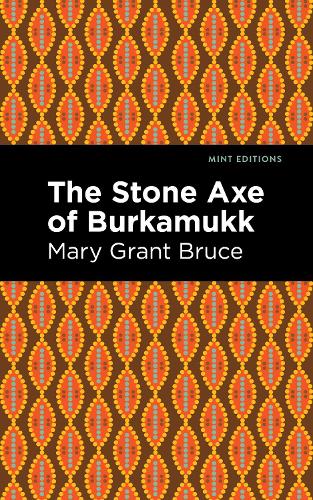
The Stone Axe of Burkamukk
(Hardback)
Available Formats
Publishing Details
The Stone Axe of Burkamukk
By (Author) Mary Grant Bruce
Contributions by Mint Editions
West Margin Press
West Margin Press
24th May 2022
United States
Classifications
General
Non Fiction
Indigenous peoples / Indigeneity
398.20994
Physical Properties
Hardback
158
Width 127mm, Height 203mm
Description
The Stone Axe of Burkamukk (1922) is a collection of Aboriginal legends by Mary Grant Bruce. The product of extensive research on the Aboriginal peoples of Gippsland, Victoria, Bruces collection was intended to educate Australian settlers regarding the traditions of those they had displaced. Despite drawing criticism for her use of racist stereotypes, Bruces hope was that her work would force her fellow settlers to see that they were boys and girls, men and women, not so unlike us in many ways, and that they could admire what we admire in each other. Recognizing her prejudices as a product of her time, one can appreciate The Stone Axe of Burkamukk as a record of Aboriginal tales as well as the writers status in settler-colonial society. The camp lay calm and peaceful under the spring sunlight. Burkamukk, the chief, had chosen its place well: the wurleys were built in a green glade well shaded with blackwood and boobyalla trees, and with a soft thick carpet of grass, on which the black babies loved to roll. Not a hundred yards away flowed a wide creek; a creek so excellent that it fed a swamp a little farther on. As the chief of a prosperous people, Burkamukk is both respected and feared by the inhabitants of the Australian bush. His stone axe, made with a sapling handle by the best craftsman of the tribe, is a symbol of his power and a useful tool for hunting. A generous leader, he often lends his axe to members of his tribe in return for a modest tribute. One day, when a hunting party comes back from a deadly encounter with a legendary kangaroo, Burkamukk swears an oath to avenge his lost tribesman. With a beautifully designed cover and professionally typeset manuscript, this edition of Mary Grant Bruces The Stone Axe of Burkamukk is a classic of Australian literature reimagined for modern readers.
Author Bio
Mary Grant Bruce (1878-1958) was an Australian journalist and childrens book author. Born in Gippsland to Irish and Welsh Australians, Bruce attended Miss Estelle Beausires Ladies High School before establishing herself as a leading journalist and poet. Her 1910 novel A Little Bush Maid launched the hugely successful Billabong series of bestselling childrens novels. In 1913, she met her husband Major George Evans Bruce on a trip to London and returned with him to Australia, where they raised two sons. During the First World War, the family moved to Ireland while George served in Europe, inspiring her 1916 war novel Jim and Wally. Back in Australia, she continued to work on her Billabong series while publishing novels for adults and working as an editor for Womens World magazine. Towards the end of her life, having lost her husband and youngest son, Bruce settled in England, where she would remain until her death. Recognized as a pioneering writer whose works helped define Australian national identity, Bruce has been the subject of controversy for her racist portrayal of Aborigines and immigrants.
